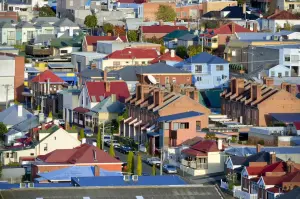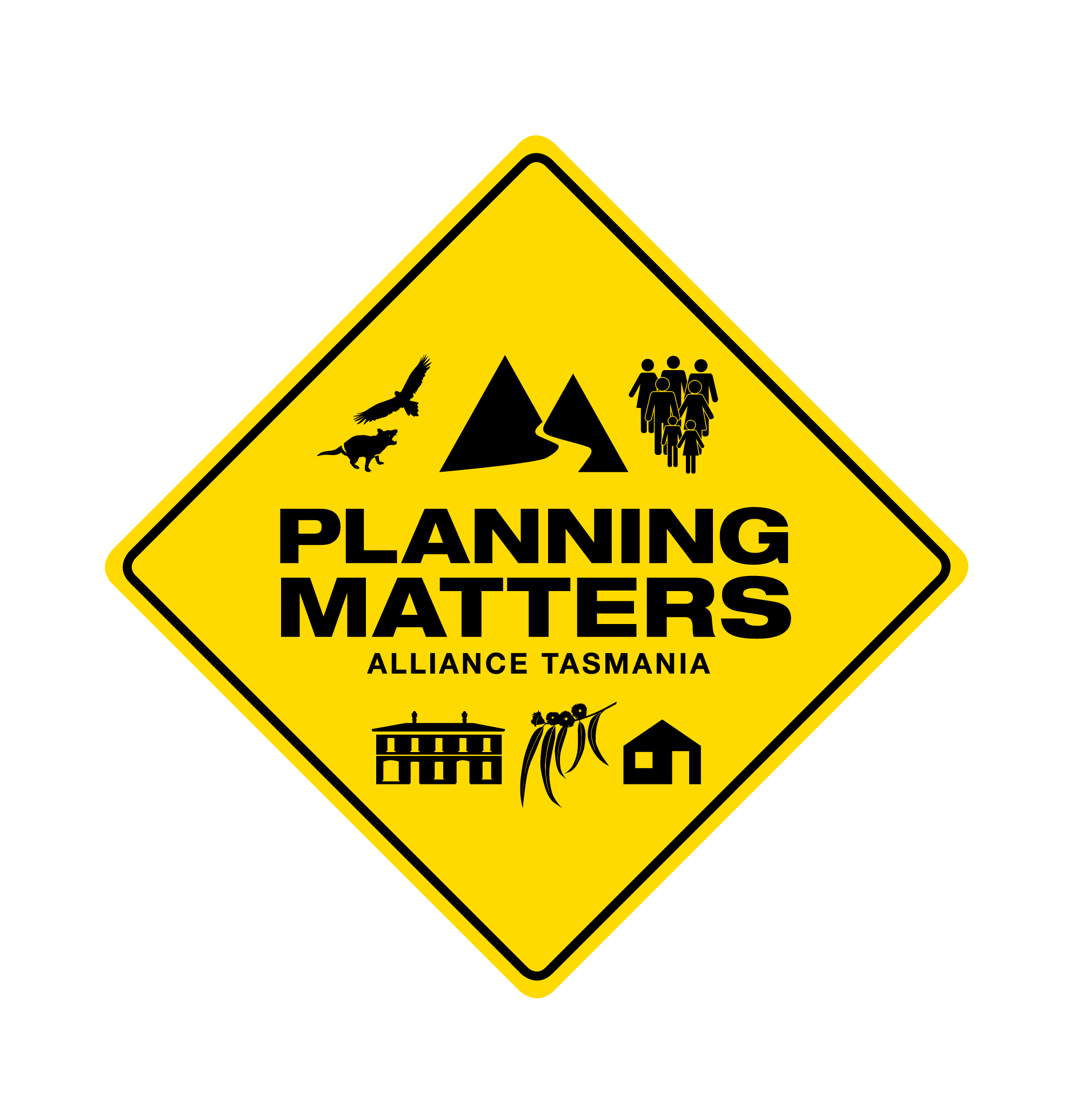- Submission
PMAT Submission: Housing Land Supply Amendment Bill 2021
Media Enquiries
Sophie Underwood
PMAT State Director
sophie_underwood@hotmail.com
0407 501 999
Please share:
Thank you for the opportunity to comment on the Housing Land Supply Amendment Bill 2021. Thank you also for the extension of time to make our submission.
The Planning Matters Alliance Tasmania (PMAT) is a growing network of almost 70 community groups from across Tasmania advocating for a strategic, sustainable, transparent and integrated planning system which will serve to protect the values that make Tasmania a special place to live and visit.
PMAT understands the critical need for social and affordable housing. One of our founding concerns was that the Tasmanian Planning Scheme contained no provisions to encourage development of affordable or social housing.
We believe that good planning, transparent decision making and the delivery of social and affordable housing need not be mutually exclusive.
While the Tasmanian Government is arguing that the crisis in availability of social and affordable housing can be addressed– at least in part – through the Housing Land Supply Amendment Bill 2021 it is important to look at the broader context of the problem. Some of the factors contributing to the shortage of affordable housing relate to policy settings controlled at the State level, but many others arise from long term national approaches to taxation, financial policy, investment and population growth. The following are key contributors to the current ‘housing crisis’:
• Australia’s very high net immigration rate. It is noted too that Tasmania is pushing aggressive population growth targets, but without any proper community consultation or consensus on what the State’s long term population should be. This is compounded by a
lack of strategic planning by the State on where these extra people will live and the provision of infrastructure and services to support them.
• The State Governments pursuit of record and growing tourism visitation numbers and consequent uncontrolled short term accommodation development for tourism reduces supply and puts pressure on long term rental availability and prices.
• The raft of Commonwealth controlled policies which promote investment in properties but do little to address social and affordable housing needs. These include:
negative gearing and capital gains tax concessions on real estate;
foreign investment in real estate;
interest only home loans; and
inclusion of real estate as an option for self-managed superannuation.
Our current ‘housing crisis’ can be seen as a demand issue associated with population growth and the treatment of housing as a commodity rather than a basic necessity of life. Land supply and planning requirements are a relatively minor factor in addressing the problem.
It is our view that the draft Housing Land Supply Amendment Bill 2021 does not go far enough to address the many issues associated with the Housing Land Supply Order process. This is also especially concerning in the absence of no overall recent Tasmanian housing and transportation strategy.
Key recommendations and concerns, largely based on PMAT’s experience of the Huntingfield Land Supply Order, include:
• The Housing Land Supply Oder legislation should set an upper size limit of the land that can be rezoned under the Act. Rezoning of public land above this size limit should go through the standard planning scheme amendment process.
• The Housing Land Supply process undermines the role of the Tasmanian Planning Commission and potentially, depending on the size of the land, undermines the role of the relevant Planning Authority.
• The process further exacerbates the limited social licence of already potentially contentious social and affordable housing proposals.
• No provisions within the Statewide Scheme to encourage the provision of social and affordable housing. Given that the review of the State Planning Provisions will be conducted in March 2022, perhaps the State Government could consider including provisions to encourage social and affordable housing instead of relying on the Housing Land Supply Act.
The process compromises strategic planning and transparent decision making. All land subject to Housing Land Supply Orders should be subject to a full 28 day public consultation period, and not just a 14 day ‘interested persons’ selective consultation. The draft Bill is limited in the respect that full public consultation will only be applied to some of the Housing Land Supply Orders. Good planning, transparent decision making and the delivery of social and affordable housing need not be mutually exclusive.
• The 14 day consultation process is unrealistic. All Housing Land Supply Orders should be subject to the 28 day public consultation period, making it consistent with the standard TPC land rezone process.
• The Housing Land Supply Orders should guarantee a percentage of social and affordable housing. All future Land Supply Orders must outline from the outset the percentage of social and affordable housing which will be delivered.
• The Land Supply Order maps could not be understood by the general public. Any maps associated with future Land Supply Orders should be made as simple and as clear as possible so the general public can readily interpret them.
• As the Parliament has the final say as to whether a Land Supply Order can be approved or not, the community had to spend a huge amount of time and energy advocating for strategic planning. This is contrary to good planning.
• Once the Order is passed by Parliament, there is no further consultation on the zoning, which is the most important stage. At the Development Application (DA) stage the zoning cannot be changed. At the DA stage public input maybe very limited depending on the layout of the subdivision i.e. if it meets Permitted standards it will not be open for public comment. There is consultation but it is not democratic or transparent.
• Confusing and substandard Department of Communities Tasmania Master Plan process. It is hoped that large areas of land will not be subject to the Housing Land Supply Order process. But if this remains, then the Masterplan process needs improving. The issues are outlined in our attached submission below.
• We do not know where and how much land and how many parcels of land could be subject to Land Supply Orders. This information needs to be publicly available before the current legislation is amended. As the Housing Land Supply order rezone proposals effectively bypass the Tasmania Planning Commission and the relevant local Councils – it is critical we know about the eligible land.
• All Housing Land Supply Orders should be consistent with the Residential Development Strategy (2013). This strategy was developed for Tasmania by the State Architect in consultation with representatives of the Minister for Human Services, Housing Tasmania,
Tasmanian Planning Commission, Property Council of Australia (Tasmanian Division), Master Builders of Tasmania, Housing Industry Association and others. The Strategy was developed to ensure that ‘Tasmanian Government subsidised social and affordable housing developments do not repeat the mistakes of the past; where disadvantage was entrenched by high density suburban fringe developments’. PMAT questions whether the Huntingfield proposal is consistent with the Strategies’ liveability development principles – which are especially critical for the success of social and affordable housing proposals.
The above concerns and rationale for the recommendations are outlined in more detail in our attached submission below.
Yours sincerely,
Sophie
More Submissions

PMAT Submission: Validation (State Coastal Policy) Bill 2024
The Planning Matters Alliance Tasmania (PMAT) thanks the Department of Premier and Cabinet for the opportunity to comment on the Validation (State Coastal Policy) Bill

PMAT Submission: Proposed changes to development assessment in National Parks and Reserves + Reserve management planning
Public comment was invited between 11 January – 9 March 2024. We thank the Department of Natural Resources and Environment Tasmania for allowing PMAT to

PMAT Submission – Discussion Paper to inform the Improving Residential Standards in
PMAT was identified as a key stakeholder and was asked to provide feedback on the Discussion Paper to inform the project moving forward.

PMAT Submission – Position Paper on a proposed Development Assessment Panel Framework
The Tasmanian Liberal Government proposes legislation to empower the Minister for Planning to remove assessment and approval of developments from the normal local council process

Support Us
Receive News & Updates from PMAT
Stay informed on what’s happening locally and statewide within Tasmania, and join our community in advocating to protect Tasmania’s future.